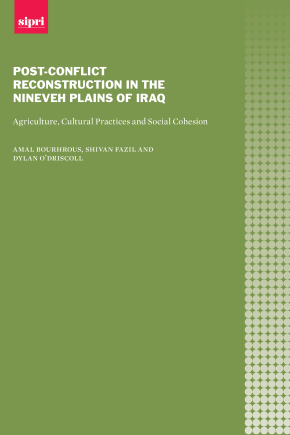Post-conflict Reconstruction in the Nineveh Plains of Iraq: Agriculture, Cultural Practices and Social Cohesion

This work is conducted in collaboration with the University of Duhok as part of the larger project on ‘Support to Traditional Cultural Practices in Northern Iraq’ led by the LASER PULSE consortium. The wider project is grounded in the practice of Embedded Research Translation.
The atrocities committed by the Islamic State (IS) between 2014 and 2017 left deep scars on the Nineveh Plains in northern Iraq. IS deliberately targeted ethnic and religious communities with the aim of erasing the traces of diversity, pluralism and coexistence that have long characterized the region. To prevent people from living as Assyrians, Chaldeans, Kaka’i, Shabaks, Syriacs, Turkmen and Yazidis, IS destroyed sites of cultural and religious significance to these communities and devastated their livelihoods, including their crop and livestock farming activities.
Using a people-centered approach, this SIPRI Research Policy Report stresses the need for a holistic approach to post-conflict reconstruction in the Nineveh Plains that not only focuses on rebuilding the physical environment and economic structures but also pays adequate attention to restoring the ability of communities to engage in cultural and religious practices, and to mending social and intercommunity relations. The report highlights the interconnectedness of physical environments, economic structures, cultural practices and social dynamics. It stresses the need to address the impacts of the IS occupation while taking into account other pressing challenges such as climate change and water scarcity.
1. Introduction
2. Post-conflict socio-economic reconstruction: Restoring agriculture and livelihoods in Nineveh
3. Restoring cultural and religious practices in Nineveh
4. Restoring intercommunity relations and social cohesion in Nineveh
5. Conclusions: Post-conflict reconstruction in the Nineveh Plains and beyond


